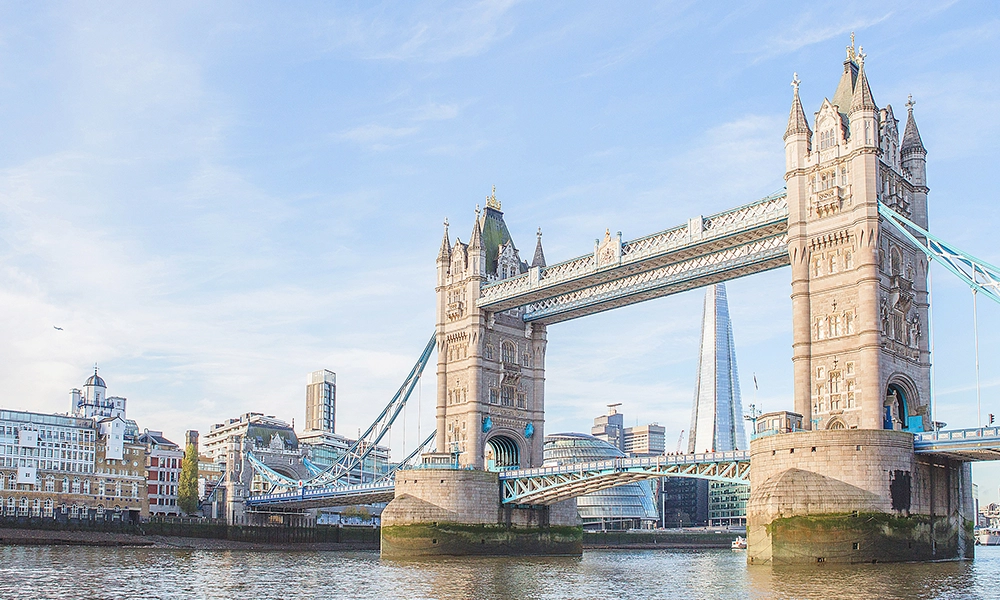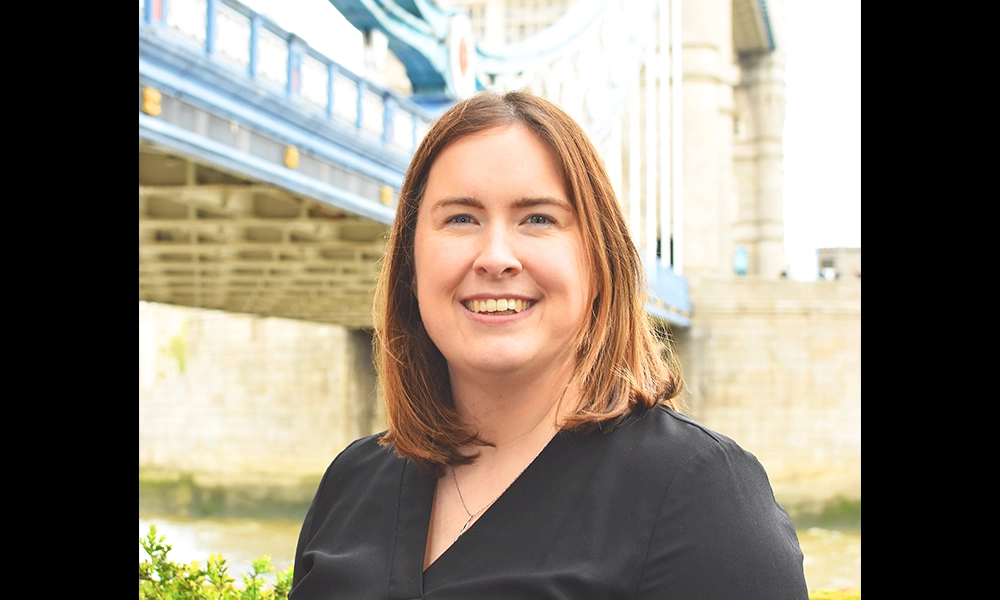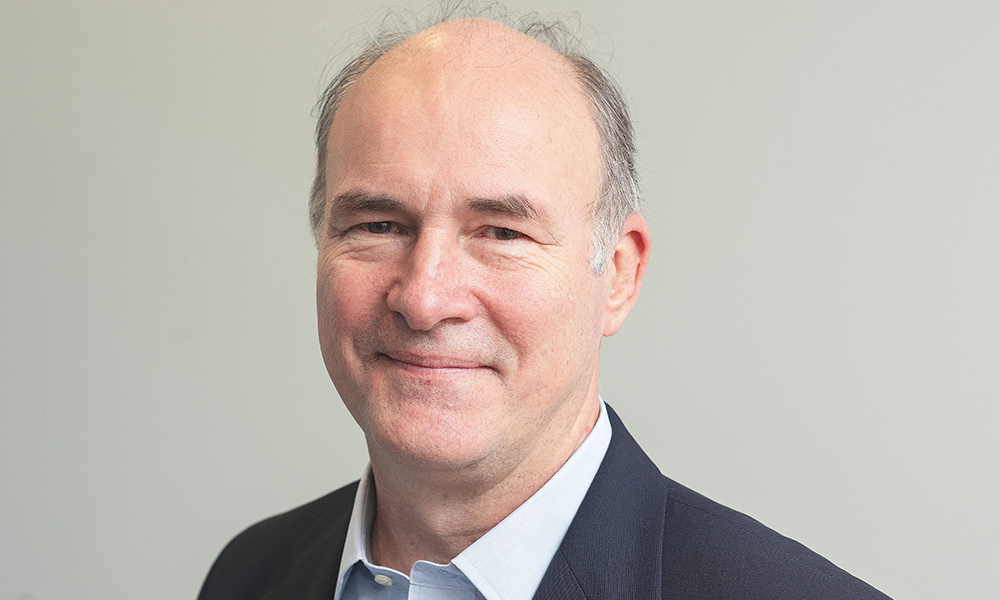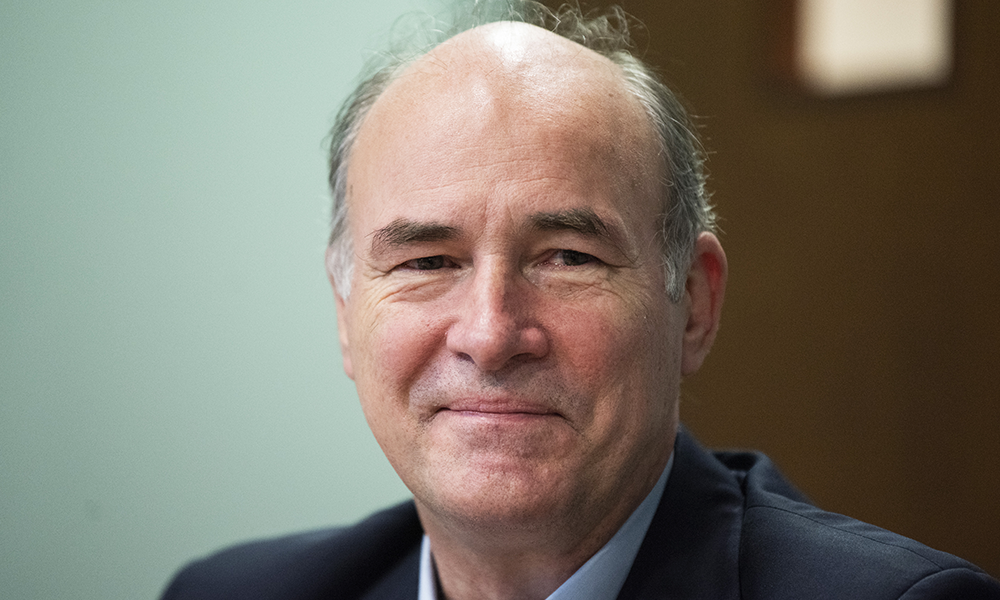Attraction is encouraging people living in Tower Hamlets, Southwark and the City Of London to explore its history and stories at a discounted rate

Subscribe to our free Wharf Whispers newsletter here
In a vaulted brick chamber on the banks of the Thames, the lime green wheel of a massive steam engine is gently, powerfully revolving.
Picked out in vibrant red, yellow and black stripes, this stately machine is no longer powered by boiling water, but a marvellous industrial relic, animated for the benefit of visitors to Tower Bridge.
Originally there would have been eight such engines – four on each side of the river – used to pump water into massive hydraulic accumulators that were used to store energy to raise the crossing’s two huge bascules.
These would swing up and down, on average, 60 times a day to allow tall ships to sail up and down the river unimpeded.
The Victorian technology is, however, just one of myriad surprises awaiting those on a trip into this major landmark.
Perhaps one of the most startling is its age.
At 131 it’s considerably older than many of the buildings that surround it, but less than a seventh of the age of the neighbouring Tower Of London, which celebrates its 950th birthday this year and inspired the aesthetic design of the crossing.

visit for £1
“Tower Bridge is London’s defining landmark, welcoming visitors from all over the world,” said Amy O’Rourke, marketing manager for Tower Bridge at City Bridge Foundation.
“We want to make it accessible to everyone, but particularly to people living locally so that they can feel it’s their local landmark.”
Amy, who joined the team at the attraction five-and-a-half years ago – after travelling down the Thames from Royal Museums Greenwich – is leading the charge to encourage more of its neighbours to visit.
To that end, Tower Bridge is seeking to highlight the fact that residents of the boroughs of Tower Hamlets and Southwark – or those living in the City Of London – can get tickets to explore Tower Bridge for £1 per person.

“We want everyone to feel welcome at the bridge,” said Amy.
“The story that we tell about its history is focused on the people – those who built it and those who have worked here.
“We have these lovely connections to the local community, the docks and the work that went on in this part of London, so we want people who are here now to know about them.”
Visitors with pre-booked tickets queue to gain access to the experience on the bridge itself then, following a quick security check, climb 200 steps or take the lift in the north tower to the crossing’s twin elevated walkways some 42 metres above the Thames.
There’s even a glass floor so people can look down on the bridge below.
The walkways were originally intended to allow pedestrians to traverse the river unimpeded given the bridge’s frequent openings, although in practice its operation was so slick most Londoners simply waited at ground level.

discovering Tower Bridge
“On the way up and in the walkways, you’ll learn about the history, why it was built – because of the need for a river crossing with the increase in traffic,” said Amy.
“You’ll also find out about the alternative designs for the crossing that were put forward, and how we got to the final design of the lovely bascule bridge we have today.
“At the time it was finished, in 1894, it was a marvel of engineering. Visitors finish the tour by descending in the south tower and making their way to the engine rooms, which are really the beating heart of the bridge.
“It’s my favourite place because you can really feel the hard work that would have been done there – blood, sweat and tears. It’s very special.
“When it was running on steam, about 80 people were needed to manage and maintain the crossing in working order.
“Throughout the visit we talk about their stories, including the likes of cook Hannah Griggs, who was born in Bermondsey and helped keep staff fed from 1911-1915. These are the people we want local residents to know about.”
There’s another aspect to Tower Bridge.
While the capital’s most easterly physical river crossing is rich in heritage, it plays many other roles too.

events at Tower Bridge
“Once the doors close at 6pm, things start to happen behind the scenes,” said Amy.
“We work with a partner called Social Pantry and have a number of spaces available for events of all kinds.
“For example, there’s a room in the north tower that can hold about 60 people for a wedding or small dinners.
“The walkways can also be used for photography, drinks receptions and dining.
“We are quite flexible on what we can accommodate – recently we’ve had jazz bands playing, gymnasts performing and acrobats showing off their moves.
“We can also offer dinner and drinks in the engine rooms, which are a more intimate space and great for engineering enthusiasts.
“We can change the lighting to match corporate branding, or events can be timed to coincide with sunset.
“It’s really special to be over the Thames, especially at night with the whole city lit up.
“We can also arrange special tours for guests so they get an enhanced experience.”
While Tower Bridge can be visited daily with slots from 9.30am-4.30pm, it’s worth trying to catch a bridge opening just for the sheer spectacle.
“When it happens London just stops for a while,” said Amy.
“It feels really special, standing there and witnessing it.
“Everyone’s normally rushing everywhere and I thought it must also be good for people’s wellbeing to just take a moment.”
Forthcoming openings are listed on Tower Bridge’s website and will take place most days in May.

key details: Tower Bridge
Those living in Tower Hamlets, Southwark or the City Of London can get tickets to visit Tower Bridge for £1 per person.
These should be booked in advance and visitors will need to bring proof of address with them on the day.
Standard tickets to Tower Bridge cost £16 for adults and £8 for children. Family ticket options are also available.
Find out more via the attraction’s website here
Read more: Sauna Boat arrives on West India Quay, offering hot and cold therapy





